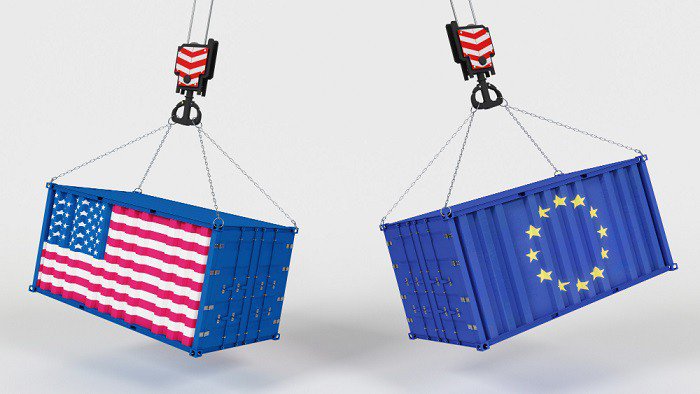
A thrilling and successful business venture may be expanding operations to international markets. There are several important factors for businesses to consider when conducting international trade in the USA. Understanding the complexities of ocean freight shipping, such as the costs, tracking, and rates for sea freight, is essential.
We will review five important questions in this blog post that businesses should consider before beginning an international trade venture in the USA.
5 questions to ask before starting international treade
How does ocean freight shipping work?
Ocean freight shipping is essential to global trade because it allows goods to be moved effectively and affordably over great distances. Before starting any business operations, it is imperative to comprehend the fundamentals of ocean freight shipping. The responsibility for shipping costs and insurance is determined by terms like FOB (Free On Board) and CIF (Cost, Insurance and Freight), so businesses should become familiar with these terms.
Additionally, a thorough understanding of the paperwork and procedures related to ocean freight shipping, such as the bill of lading, commercial invoice, and customs clearance, is crucial. Working with a trustworthy freight forwarder or logistics company can make navigating the challenges of ocean freight shipping and guaranteeing efficient operations easier.
What are the sea freight rates and charges?
Planning for international trade requires careful consideration of sea freight rates and fees. Several variables, including the weight, volume, and type of the cargo, the shipping distance, and the selected route determine the price of ocean freight shipping.
Getting quotes from several shipping companies or freight forwarders is advised to get accurate sea freight rates. Businesses can find the most affordable and dependable option for their unique shipping needs by comparing the prices and services provided.
To produce a precise cost estimate, it is crucial to consider the upfront freight costs and any other fees, such as port charges, customs duties, and handling fees.
How can I track my ocean freight shipment?
The timely delivery of ocean freight shipments and resolving any potential problems or delays depend on efficiently tracking those shipments. Most reliable shipping companies offer tracking services that let businesses follow the development of their shipments from the point of origin to the point of destination.
Providing a distinct tracking number or container number is typically required for ocean freight tracking. This number allows users to access real-time updates on the shipment's location and anticipated arrival time. Additionally, some shipping businesses offer sophisticated tracking systems that send notifications and alerts regarding any changes or potential delays in the shipping process. Businesses can maintain transparency and make necessary changes to their supply chain by routinely tracking the shipment's progress.
Are there any regulatory requirements or trade restrictions?
Knowing any regulatory requirements and relevant trade restrictions is crucial before engaging in international trade in the USA. To avoid legal problems and guarantee efficient operations, compliance with trade agreements, import/export laws, and customs regulations is essential.
Businesses should thoroughly investigate and comprehend the rules and requirements that are specific to their industry, as well as the nations that they intend to trade with.
This entails acquiring the required authorizations, certifications, and licenses and adhering to rules regarding packaging and labelling. It is also critical to be aware of any trade restrictions, embargoes, or sanctions against particular nations or goods to prevent penalties or trade disruptions.
What are the potential risks and insurance options?
Due to the inherent risks associated with international trade, businesses must identify them and take appropriate precautions to reduce them. Some potential risks connected with ocean freight shipping include cargo loss, damage, theft, and natural disasters. For the business to be protected from financial losses, it is essential to comprehend the insurance options available and choose the appropriate coverage.
To protect their products while in transit, businesses should consider purchasing cargo insurance. Cargo insurance offers protection against theft or damage while in transit and can be customized to the company's particular requirements. The best insurance options can be chosen and sufficient coverage can be ensured by consulting with insurance specialists or freight forwarders.
Conclusion
The USA must carefully plan and consider several factors before engaging in international trade, particularly when it comes to ocean freight shipping. Businesses can gain insightful knowledge into the complexities of global trade and take well-informed decisions by asking the five crucial questions outlined in this blog post. Steps toward successful and profitable international trade include understanding how ocean freight shipping operates, obtaining accurate sea freight rates, utilizing effective tracking systems, adhering to regulations, and managing risks through insurance.
You can confidently and effectively negotiate the complexities of global trade with FreightMango. Our knowledgeable staff will help you to comprehend ocean freight shipping, provide accurate quotes, and guarantee timely delivery through our cutting-edge tracking systems.





 Get instant quote
and compare offers in real time
Get instant quote
and compare offers in real time